Recently, the draft Political Report stated, "...strengthening national defense and security and promoting foreign relations and international integration are crucial and ongoing tasks." The Central Committee's first-ever identification of "foreign relations and international integration" as being on par with national defense and security as crucial and ongoing tasks has opened up a more comprehensive strategic framework for national defense, marking a renewal in the Party's strategic vision amidst deep integration and increasingly fierce global geopolitical and economic competition.
International integration - a strategic policy and vision of the Party.
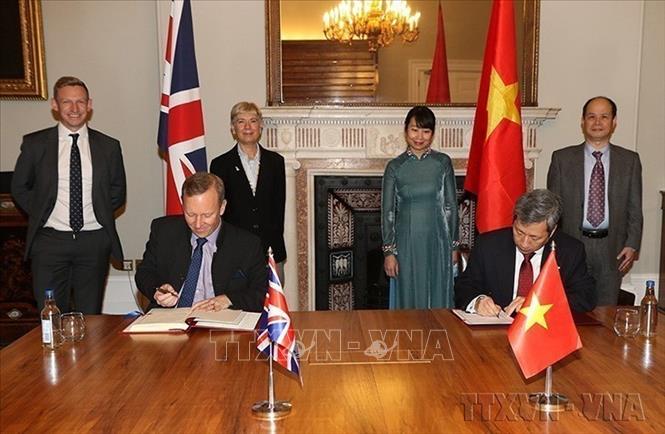
International integration is a strategic policy of the Communist Party of Vietnam in the process of building, developing, and protecting the Fatherland. From the very beginning of the Doi Moi (Renovation) process, our Party has clearly defined that openness, cooperation, and integration are prerequisites for developing domestic strengths, leveraging external resources, and achieving rapid and sustainable national development.
This viewpoint has been consistently affirmed in successive Party Congresses, such as the 9th Congress (2001) with the policy of "actively integrating into the international economy "; the 11th Congress (2011) with the decision to "actively and comprehensively integrate into the international community"... Particularly, in the draft documents submitted to the 14th Party Congress, the new development orientation clearly stated: "Economic and social development and environmental protection are central; Party building is key; cultural and human development is the foundation; strengthening national defense and security and promoting foreign relations and international integration are crucial and ongoing."
This is not only a continuation of the innovative thinking but also demonstrates the strategic vision and political acumen of the Party in an era of increasing globalization and international competition.
Looking back at history, since Vietnam joined the World Trade Organization (WTO) in 2007, the country has gradually affirmed its position as a dynamic economy with a leading degree of openness in the region. To date, Vietnam has signed and implemented 17 free trade agreements (FTAs), including many new-generation FTAs such as: the Comprehensive and Progressive Trans-Pacific Partnership Agreement (CPTPP), the Vietnam-European Union Free Trade Agreement (EVFTA), the Vietnam-United Kingdom Free Trade Agreement (UKVFTA), the Regional Comprehensive Economic Partnership Agreement (RCEP)...; while expanding cooperation with most of the world's important strategic partners.
Currently, Vietnam has diplomatic relations with over 195 countries and territories, including all 193 members of the United Nations; it has established a framework for comprehensive strategic partnerships with all five permanent members of the UN Security Council, bringing the total number of comprehensive strategic partners of our country to 14. Vietnam is a member of more than 70 international organizations and forums, holding many active roles, such as: Non-permanent member of the UN Security Council, Member of the UN Human Rights Council (3 terms), Vice President of the UN General Assembly (77th session), Chair of ASEAN (3 times), Member of the UNESCO Executive Board…
From a political perspective, integration helps Vietnam enhance its international standing and prestige, expand its foreign relations space, and contribute to creating a peaceful and stable environment for national development. Economically, integration has become an important "lever" to promote growth, shift the economic structure, and improve competitiveness. Socially, integration creates conditions for improving the quality of human resources, absorbing advanced knowledge, science, and technology, and contributing to improving people's lives. This is vivid evidence of the Party's strategic and insightful vision in leading the process of international integration.
New achievements and impetus from international integration.
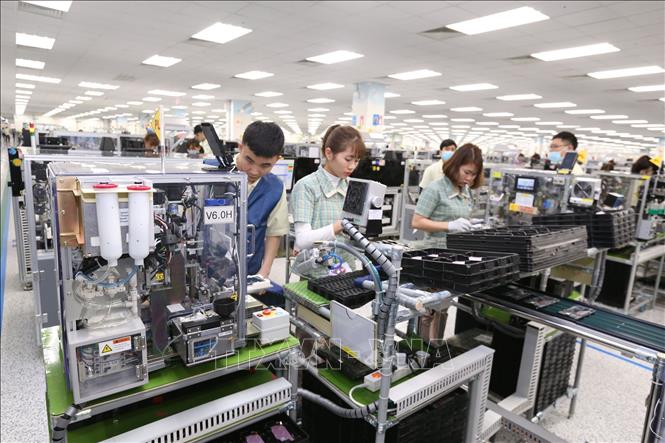
In fact, after nearly four decades of Doi Moi (Renovation), international integration has created a leap forward in the scale, quality, and influence of the Vietnamese economy.
According to the General Statistics Office, in 2024, total import and export turnover of goods reached US$786.29 billion, making Vietnam one of the 20 most open economies in the world. The trade balance continued to maintain a surplus of US$24.77 billion, marking the ninth consecutive year of trade surplus; cumulative foreign direct investment (FDI) reached over US$502 billion, with many large-scale projects in high technology, clean energy, semiconductors, artificial intelligence, and supporting industries.
Global corporations such as Samsung, Intel, LG, and Apple are expanding production in Vietnam, making the country a crucial link in the global supply chain. Simultaneously, numerous Vietnamese businesses such as Viettel, FPT, Vingroup, and Thaco have expanded into the global market, demonstrating their innovative capabilities and international competitiveness.
Integration has also strongly contributed to the transformation of the growth model from extensive to intensive. The proportion of processed and manufactured industrial goods in total export turnover reached over 88%, while key agricultural products such as rice, coffee, cashew nuts, and seafood continue to maintain their top positions in the world. Vietnam has become one of the 40 largest economies in the world, among the top 20 trading nations, and ranks 32nd in the top 100 strongest national brands globally.
In the field of foreign affairs and multilateral cooperation, Vietnam continues to demonstrate its role as an active and responsible member of the international community. Many of Vietnam's initiatives at the United Nations, ASEAN, APEC, ASEM, etc., are highly appreciated, especially those on green growth, just energy transition (JETP), and inclusive digital transformation. Vietnam is deeply involved in regional cooperation mechanisms such as the Indo-Pacific Economic Framework (IPEF), making positive contributions to the ASEAN Community.
These results have affirmed the tangible effectiveness of integration and demonstrated Vietnam's new position in the profoundly changing global landscape. However, the integration process also faces numerous challenges: the competitiveness of domestic enterprises remains limited; the export structure is not yet sustainable; the ability to adapt to high standards regarding environment, labor, and green transition is weak; and the risk of dependence on supply chains and the impact of global geopolitical fluctuations is increasing.
In light of this reality, our Party remains steadfast in its view that integration must be linked to building an independent and self-reliant economy; national independence must be linked to self-strength, creativity, and deep integration. It is this connection that has helped Vietnam avoid being passively swept along by the globalized world, instead proactively shaping its position, choosing its own development path, relying on internal strength as the foundation, and integrating to achieve faster and more sustainable development.
Leveraging the power of integration to develop a prosperous and happy nation.
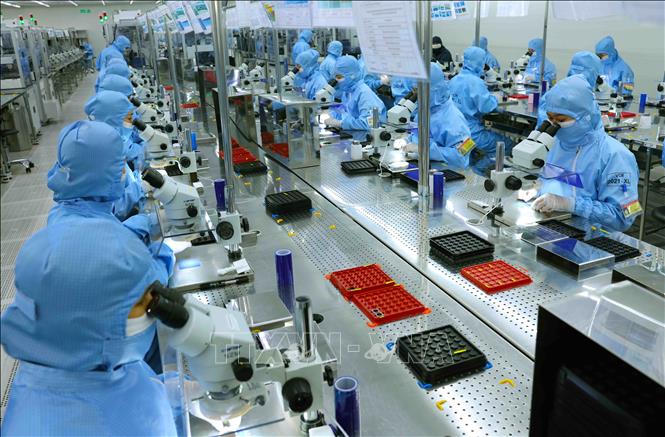
The tremendous achievements in the process of international integration over the past period have affirmed the correctness and creativity of the Party in combining national strength with the strength of the times. However, the rapidly changing, complex, and unpredictable global context demands a new strategy for more effective and sustainable integration.
Accordingly, on December 22, 2024, the Politburo issued Resolution No. 59-NQ/TW on international integration in the new situation. The Resolution identifies the overall goal as improving the quality, effectiveness, synchronicity, and comprehensiveness of the international integration process, maintaining a peaceful and stable environment for national development, while maximizing the utilization of external resources to build an independent, self-reliant, and strong economy that develops rapidly and sustainably…
The specific objectives are: International economic integration; International integration in politics, defense, and security; International integration in science and technology and innovation, culture, society, tourism, environment, education and training, health, and other fields; Enhancing capacity and political acumen for international integration.
To realize this goal, the Resolution sets out key tasks and solutions, such as: strengthening the Party's leadership, innovating thinking and actions in integration; improving the effectiveness of economic integration associated with restructuring the economy, innovating the growth model and promoting digital transformation; promoting integration in politics, defense, and security in a comprehensive and effective manner, contributing to maintaining a peaceful environment and protecting the Fatherland from early on and from afar; promoting international integration in the fields of science, technology, innovation, culture, society, tourism, environment, education, training and health; enhancing the capacity to implement international commitments, associated with perfecting domestic institutions and laws; and simultaneously improving the effectiveness of directing and coordinating integration work, promoting the proactive role of localities.
After nearly a year of implementation, Resolution No. 59-NQ/TW on international integration in the new context has achieved many important initial results. Ministries, sectors, and localities have proactively developed action programs, concretizing them into plans and projects suitable to practical conditions. Economic integration continues to be promoted; FDI attraction has reached a high level, focusing on high-tech fields, energy transformation, and the digital economy.
Simultaneously, integration in defense, security, and foreign affairs has been implemented synchronously, contributing to consolidating a peaceful and stable environment and enhancing Vietnam's international prestige. In particular, cooperation in science and technology, education, culture, health, and tourism has been expanded, promoting innovation and sustainable development. These results affirm the proactive, creative, and responsible spirit of the entire political system in realizing the strategic direction set forth in Resolution 59.
Source: https://baotintuc.vn/chinh-polit/international-integration-important-momentum-to-bring-the-country-into-a-new-era-20251106074051823.htm













































































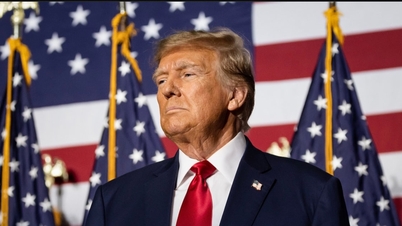

































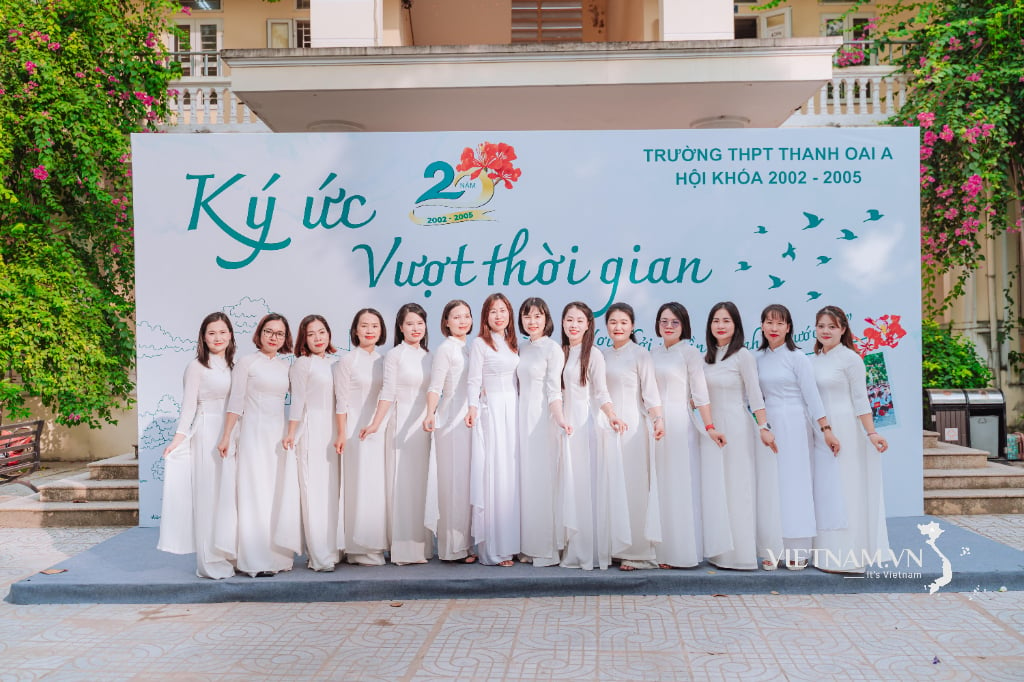
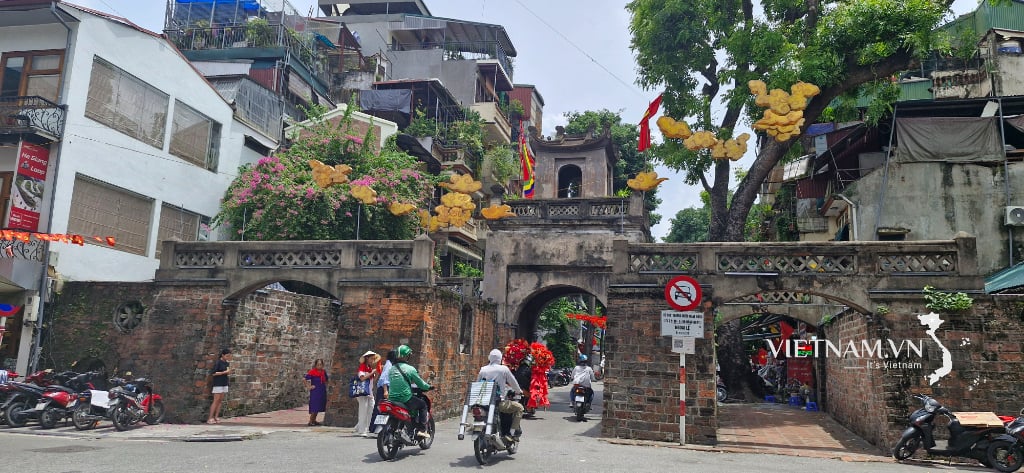
Comment (0)